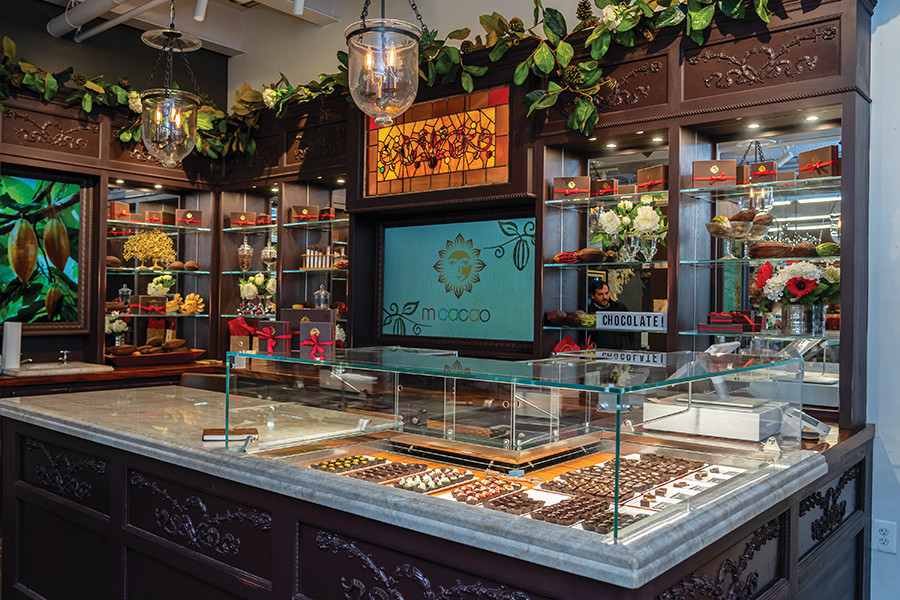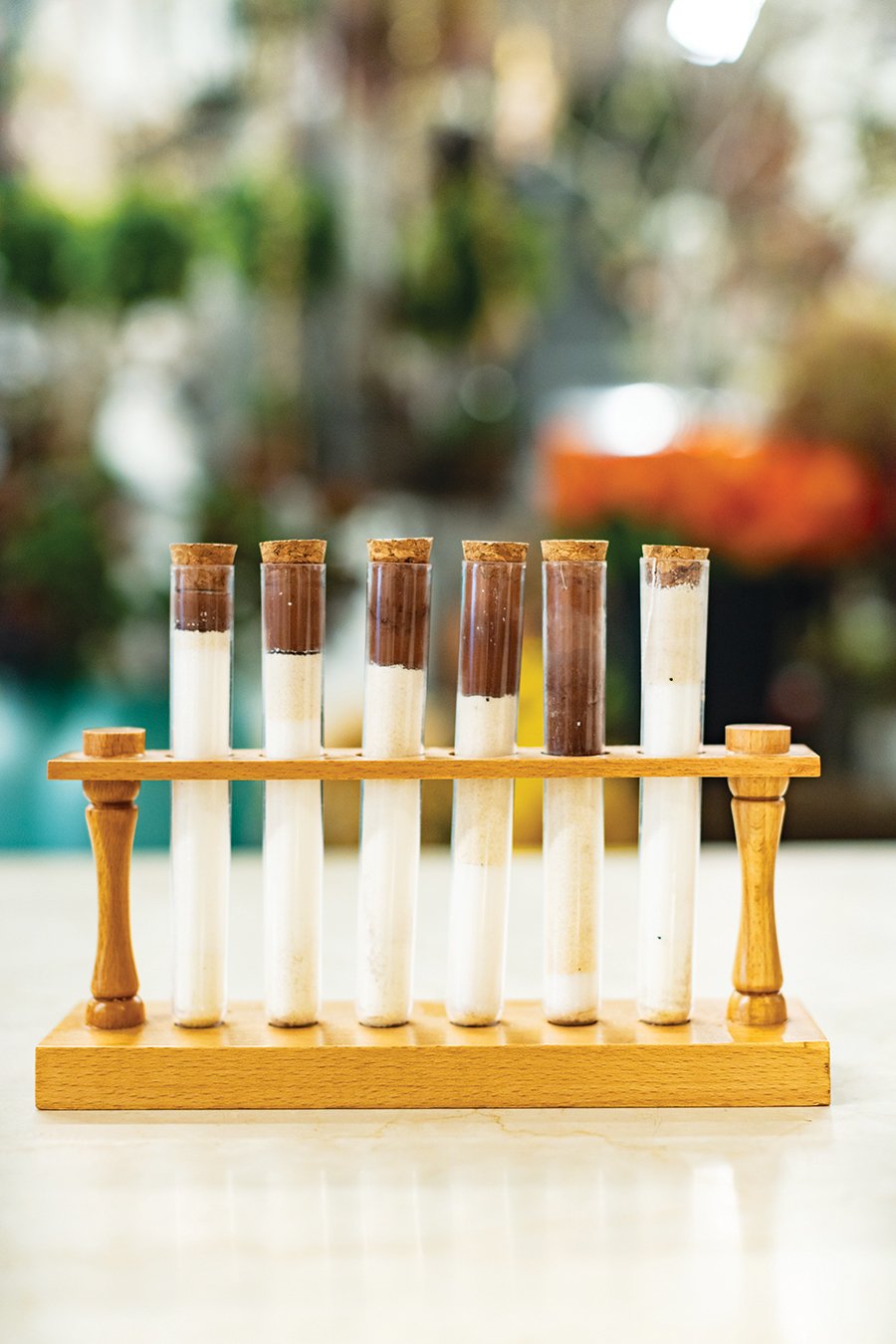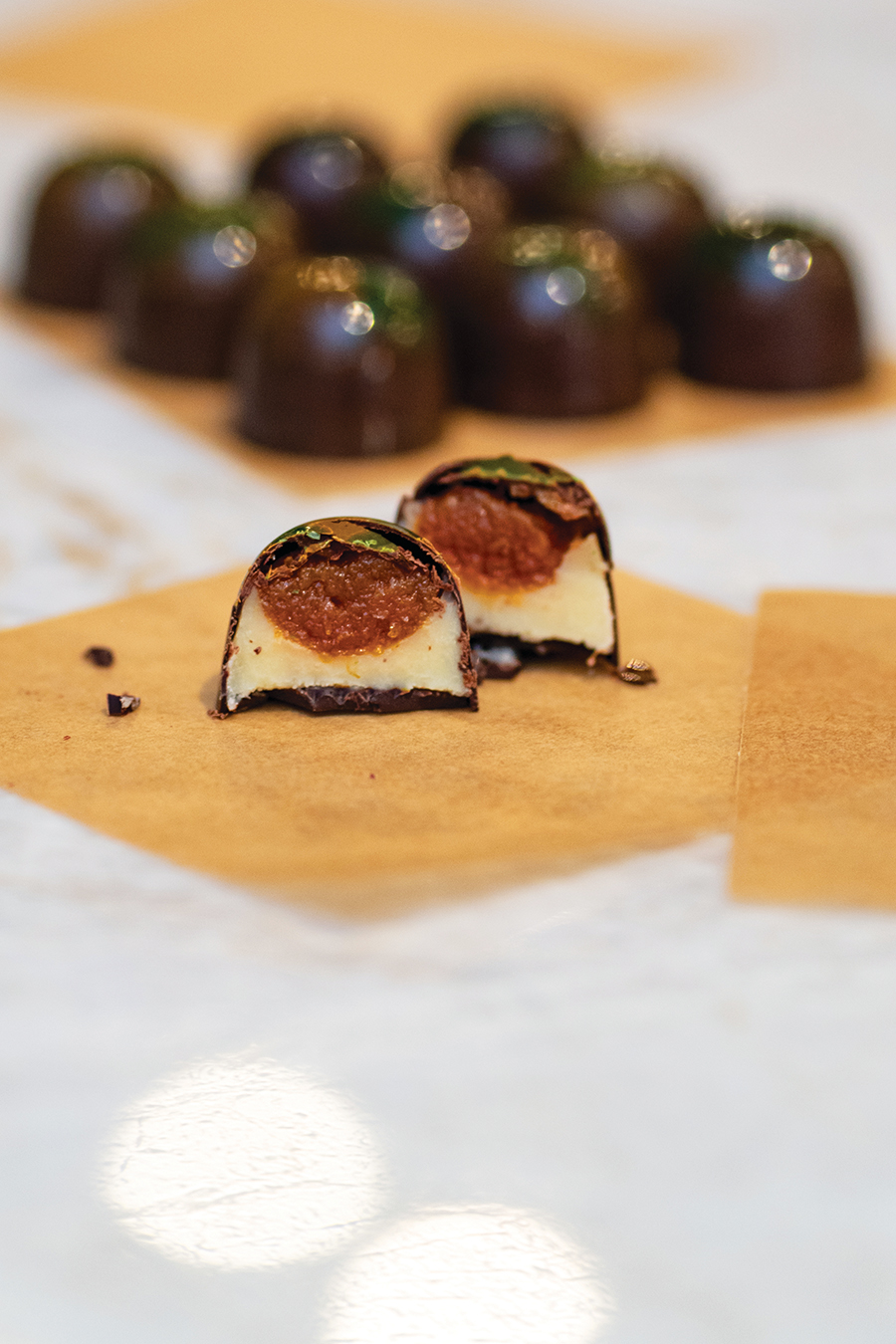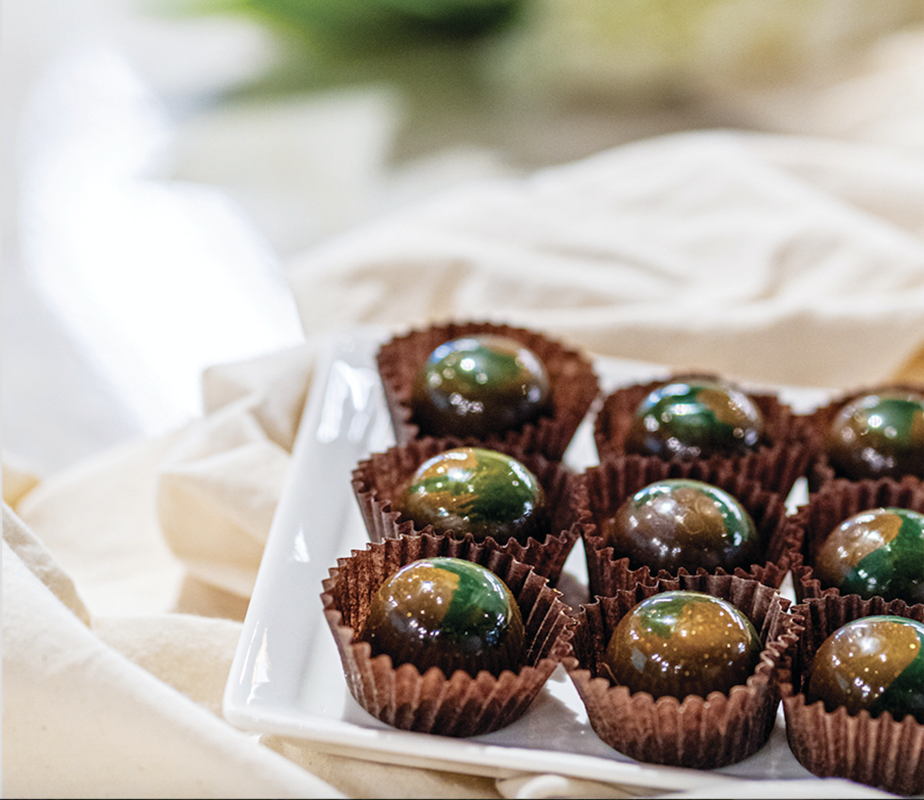Mark Lawler and Michael Nichols are sitting in Nichols’ kitchen, discussing chocolate… with onions. “I can see where a green onion ganache would be good,” Lawler muses. “Anything with those subtle light flavors, like citrus and garlic…” Nichols breaks in, “Well… garlic and chocolate. I don’t know if that would work….” For the next few minutes, they banter about what kind of garlic might work with what kind of chocolate.
“This is what we do all the time,” Nichols says with a laugh. “It’s fascinating.” The two are partners in m cacao, a tiny chocolate shop with very big ambitions tucked inside Beach Plum Too florist in Newburyport.
To Lawler and Nichols, the possibilities for chocolate are endless. Neither comes from a food background; instead they each drew on their past careers—Nichols as an engineer and Lawler a stay-at-home dad whose previous experience includes working in the film industry in Los Angeles—to craft the idea behind m cacao.

In fact, they don’t even think of themselves as a chocolate shop, but rather a technology company that uses chocolate as a medium. “We’re really looking at the process of how you innovate new products quickly based on novel techniques,” Nichols says. “And that’s not a food-world expertise. That’s a technology-world expertise.”
Case-in-point: the company’s signature Thank You Honey Bee Bon Bon—raw wildflower honey atop a praline of caramelized almonds and wildflower pollen, encased in Valrhona chocolate shaped like a beehive. The tiny treat packs an amazing number of flavors and textures, from the crunch of the almonds to the sweet viscous hit of honey and the snap and slight bitter edge of the chocolate casing. It’s a treat that demands attention, lingering on your palate. “It’s not just a candy,” Lawler says. “You’re tasting real food.”

It’s also a complex bit of engineering—keeping that honey liquid atop the tiny disk of praline, and managing to enrobe the whole thing in chocolate. And that’s what thrills Nichols, who decided to make an abrupt career switch during a family vacation to Peru. After visiting a local chocolate factory, and seeing the ways Peruvians live off the land, he woke in the middle of the night with the phrase “I have to make chocolate” echoing in his head.

“It sounded crazy, because I was an engineer,” Nichols recalls. “But I started thinking, ‘Okay, now I’m going to make my living at chocolate. That doesn’t make sense.’ But I had to do it.”
But the more Nichols thought about it, the more sense it made. “Chocolate is such a finicky medium and the engineer in me loved that … taming this temperamental beast was very appealing.” Nichols signed up for culinary school, took an online chocolate course and traveled to France to study. Then hung out a shingle with Lawler as a partner, intending to upend Americans’ concept of chocolate.

“Chocolate shouldn’t be fake. You know, food should be the one thing we hold onto as real,” Lawler says.
The pair draw a thick line between what they craft and the “chocolate-flavored candy” that is prevalent in the United States, which often harbors more sugar and artificial ingredients than actual chocolate.
“When people are scarfing down Hershey’s Kisses, they’re not doing it for the chocolate,” Nichols says. “Metabolically speaking, you’re scarfing that down to get the sugar hit. I’m using much darker chocolate with much less sugar. The complexity of fine chocolate is a very different experience.”

But the story goes beyond the food product itself. The pair wants to tell tales with their treats. For example, m cacao developed the Thank You Honey Bee Bon Bon for the movie The Pollinators, which details the plight of the honey bees and was featured at last year’s Newburyport Documentary Film Festival.
“The bon bon is a complete story,” Lawler says. “We watched the movie, we talked about it, and we tried to find the best local ingredients. We tried to really create something that had some meaning to it.”

And they succeeded, by all counts. The director and producer of the film, who were in attendance at the Newburyport screening, were so impressed by the combination of local honey, almonds—pollinated by bees, of course—and pollen dust that they asked m cacao to make chocolates for the Napa Film Festival.
Their ambitions reach far beyond their tiny shop—m cacao is in the design phase for a “chocolate studio” at 19 Pleasant Street in Newburyport, slated to open late this year.
“I want to find new and exciting ways for people to interact with chocolate—ways that they’d never even thought about,” says Lawler. “So it’s not a candy—it becomes more of a moment of bliss, a quiet moment where you can savor each and every element.”
For more information or to purchase, visit mcacao.com.

